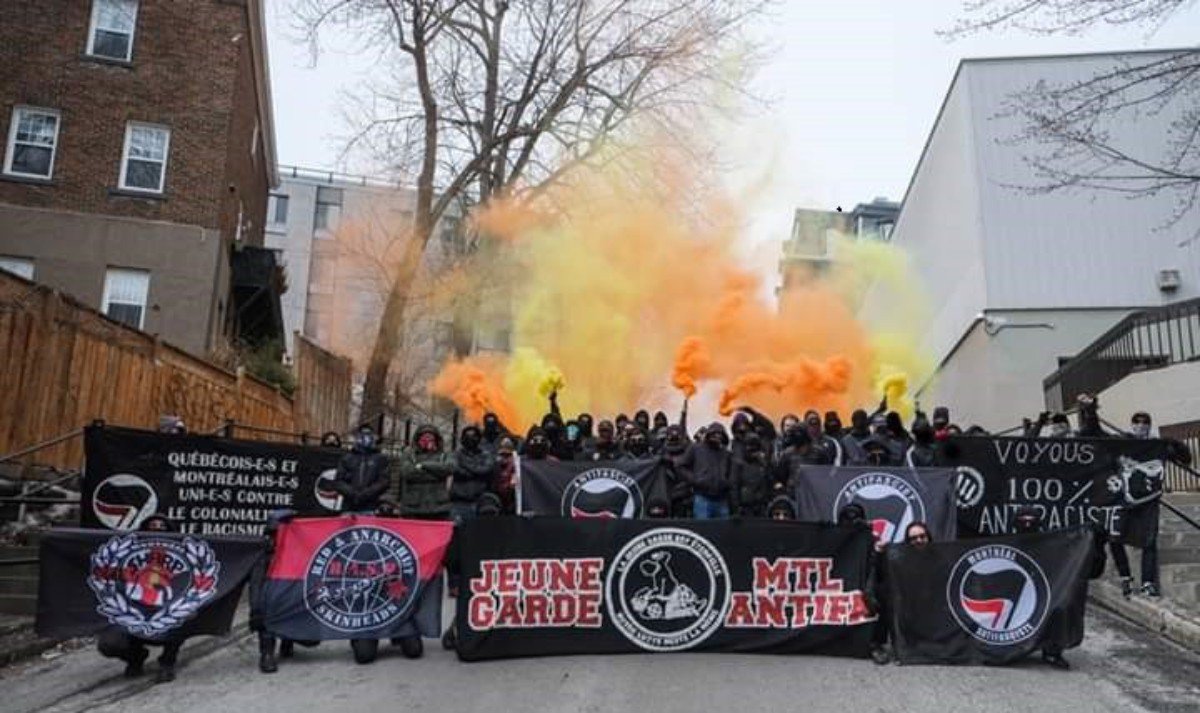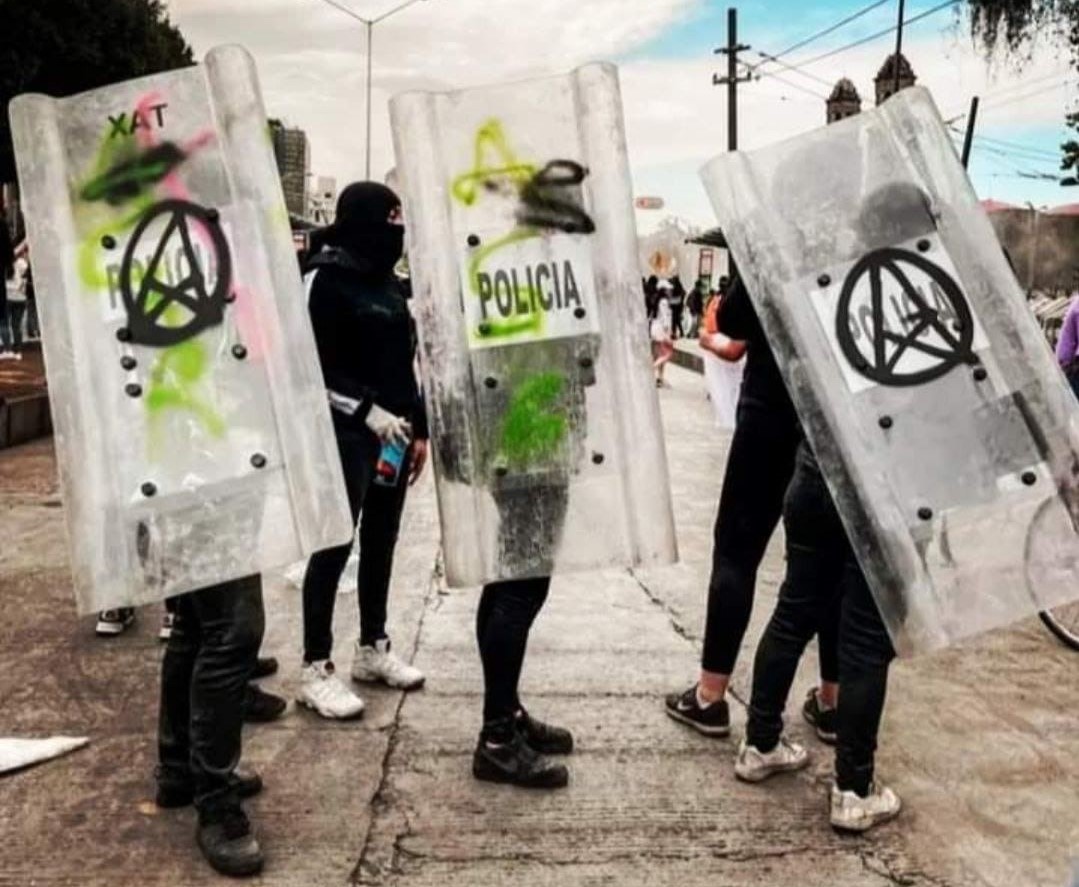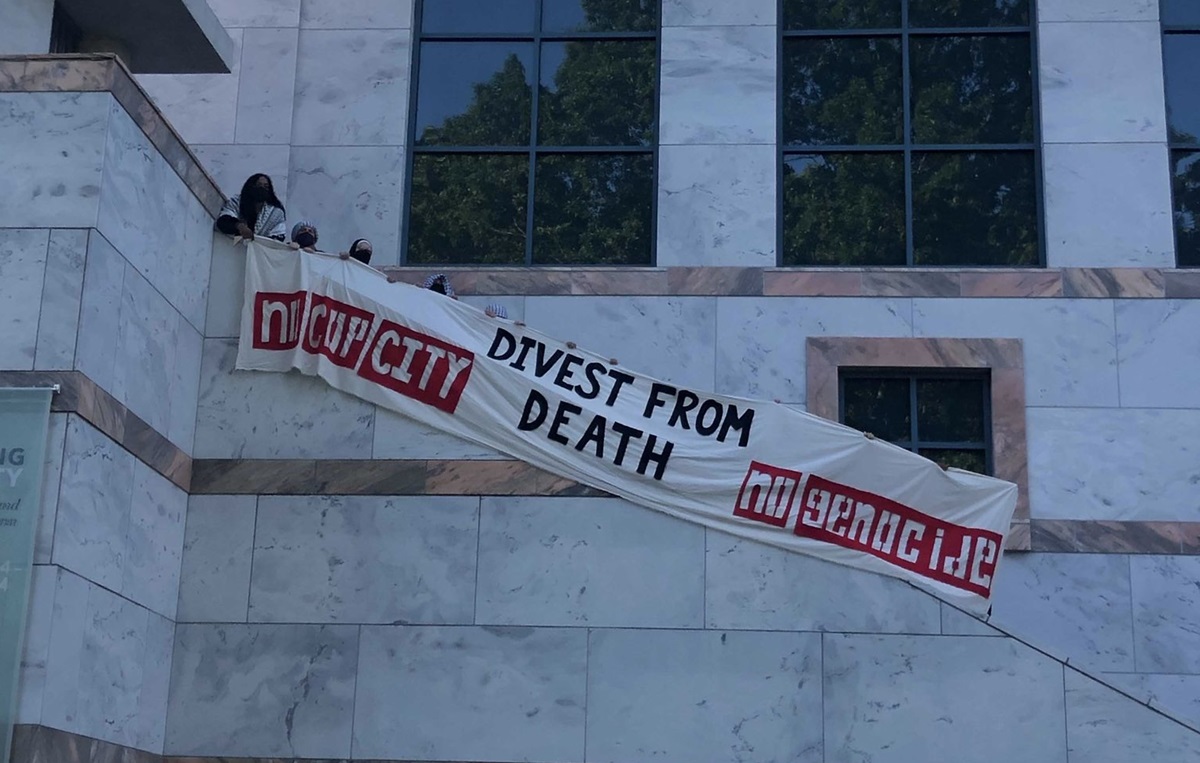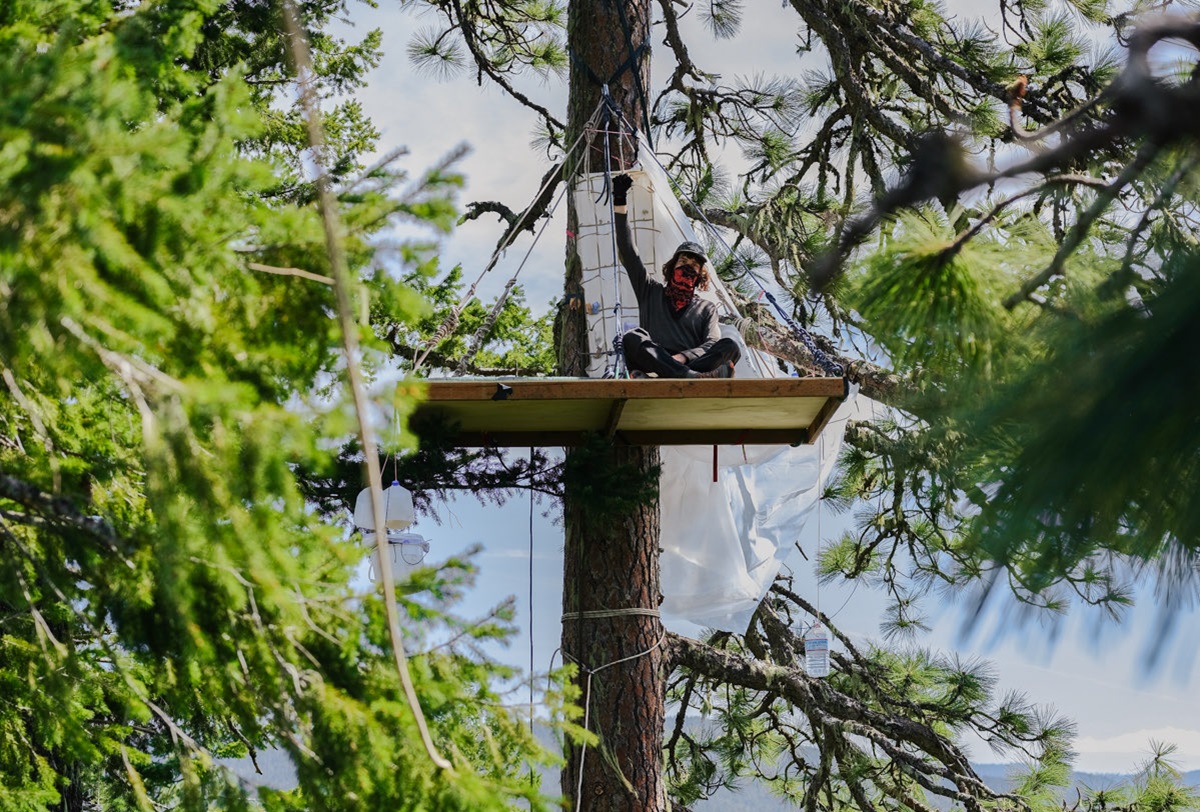Filed under: Anti-fascist, Interviews, Quebec

Interview between Montreal Antifascists and Antifascist Action. Originally published here.
Below is an interview with members of Montreal Antifascists. For more information on the group, see their homepage here.
Can you give a brief summary of the fascist and antifascist movements in your country at the moment? How is it different from 10 years ago, and what is the prediction for the near future?
Speaking only of Québec here and below: several years ago the major far-right threat was the national populist organizations—i.e., populism, ultranationalism, anti-immigrant, Islamophobic—like La Meute and Storm Alliance, but a combination of factors—counterdemos, negative media attention, internal financial and sex scandals, poor security practice, and most importantly the victory of the current Québec government, the Coalition avenir Québec (CAQ), a mainstream populist party that fulfilled to a good degree their major demands: a ban on religious symbols in the public sector that largely affects Muslim women; reduced immigration (at least on paper), with a focus on francophone immigrants, an increased limitation of the rights of the large anglophone majority and any immigrants who would be more likely to integrate into anglophone culture than into francophone culture, the vociferous denial of systemic racism in Québec.
Currently there are a number of small neo-Nazi, fascist, and fascist-adjacent organizations, but their activity is largely online, with the occasional sticker campaign or banner drop. Their capacity for popular mobilization, at this point, is very limited.
Covid allowed some of the former leadership of far-right groups in decline to retool themselves around anti-protocol politics, with fairly successful mass mobilization for several years, but these groups have largely gone into decline as health measures have been lifted.
Under the right circumstances, any of these groups could make a comeback or new groups with similar politics could arise. The major issue is the relatively widespread right-leaning sentiment among the population at large that sometimes coalesces around anti-immigrant, Islamophobic, and hard nationalist sentiments. Although largely inactive, the speed with which people with these nebulous right-wing politics were mobilized around anti-protocol initiatives (primarily anti-masking and anti-vaxxing) indicates the risk we face.
What made you want to establish a whole new antifascist organization instead of joining the existing ones?
There was no obvious anti-fascist group to join. RASH, Jeune Garde, and the Sisterhood were groups that came out of and appealed to a particular demographic and were less likely to appeal to many of the people who wanted to be active in way that allowed for greater mainstream reach. In recent years, both Jeune Garde and the Sisterhood have disbanded in Quebec. RASH remains active, and we have very friendly and comradely relations and cooperate on a case by case basis. Our group came out of an initiative that involved a number of left-wing groups and individuals.
For swedish antifascists it’s clear that our countries neoliberal economic development has been going hand in hand with a new surge in recruits for the swedish fascist movement. Are there any similar connections to be made between the racism and fascism on the streets in your cities and the right-wing economic policies of the government in your country?
Neoliberalism, more specifically the crisis neoliberalism now finds itself in, certainly plays a role in the rise of the far-right, particularly given the lack of a cohesive left-wing or even social democratic response to this crisis. The fact is that the right has been more successful at offering an organized response to the current crisis than the left has been. Developing a more broad-based, cohesive, and organized response to the current economic crisis and the crisis faced by liberal democracy is a key component to resisting and reversing the rise of the right. At this point, any such response is rudimentary and fragmentary at best.
Are you trying to develop new organizational forms and methods for confronting the new era of fascist movements, and if so, what role does physical violence as a tactic play for your group?
As well as traditional forms, such as counterdemos, stickering/postering, propaganda at demonstrations and events, and public education, doxxing has become a major feature of our work.
While we would not initiate violence or suggest that anyone else do so, we would engage in active self-defense in the event of a street conflict. We would also proactively defend any event, venue, group, or individual threatened by the far right.
Furthermore, we would not criticize any comrades who did decide to initiate violence against members of the far right or to destroy their property, which in many cases would simply be preemptory self-defense, in any case.
Keeping the right-wing offensive going through Europe in mind, where does the antifascist movement in your country get its membership from (for example recruiting from working class neighbourhoods, from football culture etc)? How is the balance between newer younger people and older activists?
We began as a coalition of members of a number groups and interested individuals who began meeting in large assemblies, and over time settled into a distinct group. New members are recruited on an individual basis and must be known to at least one of our members who is able to vouch for them and their seriousness. Our group is made up of three generations of anti-fascists, with the oldest members tracing their politics back to the seventies, and the youngest members radicalized around more recent struggles, a student revolt that galvanized a popular uprising in 2012 being one key element. The groups we are most closely allied with are similarly diverse.
Fascist and antifascist attitudes within countries and cities tend to be based on strictly geographical lines. In Sweden for example, the southern districts with the exception of Malmö is generally the most xenophobic, while the northern parts of the country tend to be more left-leaning. Do you have any fascist and antifascist strongholds within your cities?
In Québec, the split is most pronounced between Montréal, the most multicultural city in the province and home to the most of the anglophone minority, and Québec City and the surrounding suburbs and small towns, where the highest concentration of right-wing activity has taken place. The split is less geographical than cultural, for reasons related to the history of colonialism and nationalism in Québec.
How does the cooperation between the antifascist groups and the broader left-wing movement look like? Are there any connections to parliamentary groups, unions, workplaces, environmental organizations etc?
Our closest allies are in groups doing work with immigrant and refugee communities, the anti-capitalist coalitions (mostly anarchist and left communist), and the anti-Zionist Jewish left. We also have close contact with other far-left organizations with whom some of our members work and collaborate. Our contact with political parties, unions, and workplace organizations is close to nonexistent, with the notable exception of the local IWW. Our cooperation with environmental organizations has been limited but positive.
To what degree are antifascists in your country persecuted by the police and the legal system, in comparison to fascists? Are there any antifascists serving prison-time at the moment, and if so, how can antifascists in other countries help?
Other than targeted over-policing during public counterdemos, there has been no apparent persecution of our members or other antifascists nor have we been illegalized in any way. To date, even the arrests in that context have been minor, resulting in fines. There are not currently any anti-fascists imprisoned in Québec for anti-fascist work.
What channels are you using to spread information? How can people come in contact with you?
Website: http://montreal-antifasciste.info
Twitter: https://twitter.com/MontrealAntifa
Facebook: https://www.facebook.com/MontrealAntifasciste
And occasional distribution of propaganda at public demonstrations.
Finally, what gives antifascists in your area hope?
Anti-fascists have so far been able to quash serious street-level, far-right organizing in this province, and the anti-fascist/anti-racist milieu is going strong. At that level, the fascists have been losing consistently here since the nineties. Unfortunately, reactionary and populist nationalism is gaining ground in the mainstream, thanks to opportunistic politicians and a media landscape dominated by a populist media conglomerate and its large roster of conservative and reactionary columnists. This, we have next to no control over.




